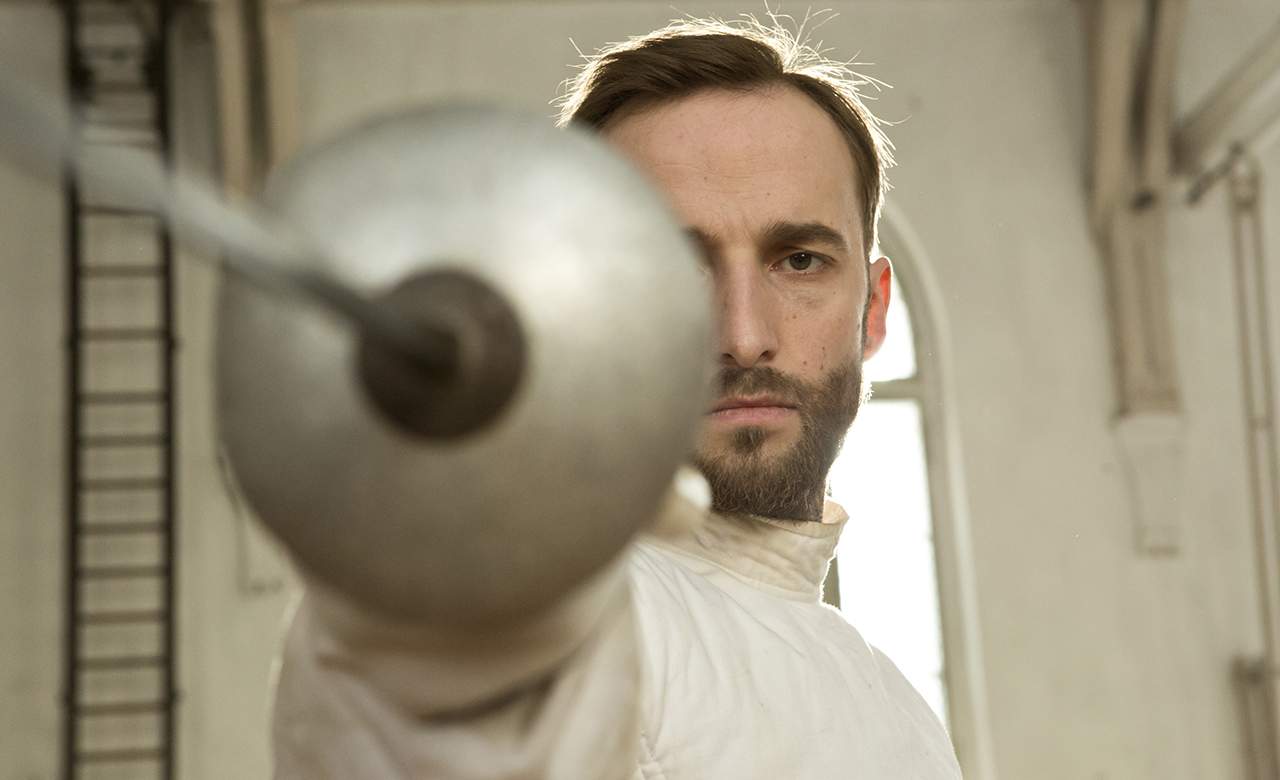The Fencer
Finland's submission to the Academy Awards is an uplifting sports film filled with intimate moments.
Overview
Think you've seen every underdog sports movie there is? Think again. The Golden Globe-nominated, Academy Award-shortlisted The Fencer doesn't quite thrust and parry its way into new territory, but it still does much more than offer an Estonian-set answer to The Mighty Ducks, or swap bobsleds for fencing foils.
It's with tones of beige and grey that The Fencer tells its tale, made up of familiar components. Indeed, as a champion seeks a new life in a small town, largely by instructing eager students in the titular pastime, there's no escaping the been-there, done-that vibe that matches the film's colouring. And yet, feel-good sports films are typically shinier and more spirited as they work their way towards the uplifting outcome the audience knows is coming. Tempering Finnish director Klaus Härö's addition to the genre is the shadow of reality, with the film's narrative ripped from the plight of a man fleeing Soviet persecution in '50s-era Estonia.
Part against-the-odds drama, part portrait of life after wartime, The Fencer doesn't attempt to brighten up the story of Endel Nelis (Märt Avandi). Instead, it offers a faithful depiction of a dark chapter in his life, coupled with hard-earned slivers of hope for viewers to hang on to. The bland shades that fill the film's frames reflect its quest to recreate a period and setting; however, emotionally, they couldn't be more fitting. Working with a script by first-timer Anna Heinämaa, Härö is keen to emphasise the dull drudgery that surrounds Endel in a place where fear or blind allegiance have become the only modes of thinking. The town is stifled, wearied and lifeless, and it's reflected in the film's visual palette.
When Nelis takes a job as a sports teacher in Haapsalu, he's feeling much the same — and the way that his new headmaster (Hendrik Toompere) dismisses his fondness for fencing doesn't help. Add the fact that he's neither keen on children nor eager to get to know anyone, and he seems set for a dire time in hiding. Then he decides to start a weekend sports club, and is pleasantly surprised by the significant turnout. Standout pupils Marta (Liisa Koppel) and Jaan (Joonas Koff) prove particularly enthusiastic, welcoming the escape from their own respective troubles, and eventually pleading to participate in a national tournament in Leningrad.
Despite its historical basis, there's little in The Fencer that doesn't play out as expected, but don't discount the impact a predictable tale can have when it's couched in empathetic performances and built from small, intimate moments. Even when the film threatens to overplay its hand — which is unsurprisingly often given the combination of a brooding protagonist, endearing kids, enduring hardship and a sporting competition — it still infuses recognisable scenes with intimacy and earnest affection. Here, seemingly simple exchanges between characters say more than clichéd training montages and climactic contests ever could.





